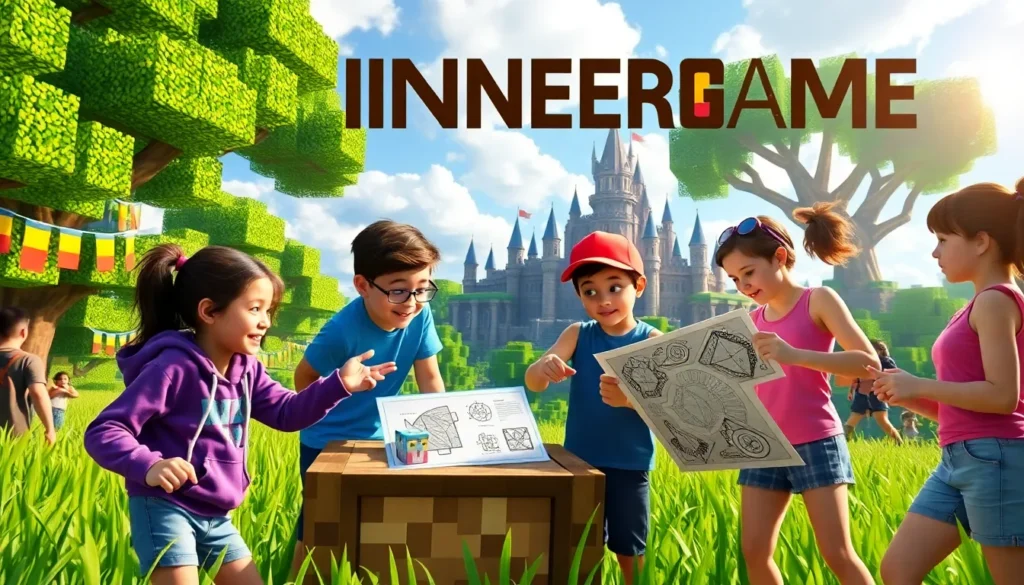In a world where every coffee shop has a coder tapping away at their laptop, mastering the art of coding is no longer just for tech wizards. It’s for everyone. Coding guides are the magic wands that can turn a bewildered newbie into a programming pro faster than you can say “syntax error.” Whether you’re looking to build the next viral app or just want to impress your friends at parties, these guides are your secret weapon.
Table of Contents
ToggleOverview of Coding Guides
Coding guides serve as essential tools for anyone looking to learn programming. They simplify complex concepts, making coding more approachable for beginners and enhancing skills for experienced developers.
Importance of Coding Guides
Coding guides offer structured learning paths that accelerate the acquisition of programming skills. Beginners gain confidence as they follow step-by-step instructions. Resources like coding guides help demystify languages such as Python, JavaScript, and C++. Users find that these guides contribute significantly to building foundational knowledge, facilitating hands-on practice. An abundance of practical examples enhances understanding, ensuring learners grasp core principles effectively.
Types of Coding Guides
Numerous formats exist for coding guides, catering to diverse learning styles. Video tutorials provide visual learners with engaging content. E-books and online articles deliver in-depth explanations and examples for readers who prefer text-based resources. Interactive platforms allow users to code alongside guided exercises, fostering immediate application of learned concepts. Community forums and coding bootcamps offer supplemental support, encouraging collaboration and continuous learning.
Popular Coding Guides

Coding guides have evolved to cater to the needs of programmers at all levels. They cover a wide array of topics, facilitating skill development in a structured manner.
Programming Languages
Numerous coding guides focus on specific programming languages, making them accessible for learners. Python guides often emphasize its simplicity and versatility, attracting beginners eager to dive into coding. JavaScript resources provide in-depth tutorials that foster web development skills. C++ guides typically explore advanced concepts, enabling experienced developers to enhance their expertise. Comprehensive e-books and interactive online courses comprise valuable offerings that cater to different learning preferences, ensuring everyone finds the right fit.
Frameworks and Libraries
Guides dedicated to frameworks and libraries introduce essential tools that streamline development processes. React tutorials familiarize users with component-based architecture, excellent for building user interfaces. Angular resources provide insights into robust application development and seamless integration. Developers exploring back-end solutions benefit from guides on Node.js and Express.js, which support creating scalable applications. Throughout these guides, learners encounter practical examples and best practices, helping them leverage these technologies effectively.
How to Choose the Right Coding Guide
Selecting a suitable coding guide impacts a learner’s programming journey. Several factors contribute to this decision, including the individual’s skill level, specific goals, and preferred learning style.
Skill Level Considerations
Evaluating skill level serves as a foundational step. Beginners often benefit from guides offering fundamental concepts and basic exercises. Intermediate learners should seek resources that challenge them with practical projects and real-world applications. Advanced programmers may prefer guides focused on specialized topics or cutting-edge technologies. Recognizing one’s proficiency enables selection of appropriately challenging material, ensuring engagement and effective skill enhancement.
Goals and Learning Style
Defining specific goals helps narrow down choices. Some may aim to acquire coding for career advancement, while others seek personal projects. Additionally, learning styles vary; visual learners might favor video tutorials, while readers may opt for e-books or articles. Finding resources that align with learning preferences promotes better retention and application of programming knowledge. Engaging with interactive platforms can complement individual goals and enhance the overall learning experience.
Benefits of Using Coding Guides
Coding guides enhance the learning experience for aspiring programmers. They provide valuable resources that facilitate comprehension and skill development.
Structured Learning
Structured learning benefits participants immensely. Coding guides offer a clear framework for learning programming languages. Users can progress from basic concepts to advanced applications systematically. Each step builds on prior knowledge, ensuring a solid foundation. For instance, guides that introduce Python start with fundamental syntax before tackling complex projects. This methodical approach minimizes confusion and enhances retention. Furthermore, learning paths are tailored, allowing individuals to focus on specific areas of interest or career goals. This adaptability fosters confidence as learners can track their progress easily.
Community Support and Resources
Community support amplifies the effects of coding guides. Online forums and coding bootcamps provide spaces for collaboration and dialogue. Engaging with peers encourages shared knowledge and problem-solving. Users can receive feedback on their code or seek assistance with challenging concepts. Additionally, many coding guides link to popular online resources, enriching the learning experience. Access to supplemental materials, such as article collections or video tutorials, further solidifies understanding. By participating in community discussions, learners gain diverse perspectives that deepen their insights. Overall, support networks significantly bolster motivation and commitment to mastering coding.
Coding guides play a pivotal role in today’s tech landscape by making programming accessible to everyone. They not only simplify complex topics but also provide a structured approach to learning. Whether through video tutorials or interactive platforms, these resources cater to various learning styles and help individuals build confidence in their coding abilities.
As learners engage with these guides, they can expect to see significant progress in their skills. By selecting the right resources aligned with personal goals and skill levels, aspiring programmers can enhance their learning experience. The journey into coding is no longer daunting; with the right guidance, anyone can embark on this rewarding path and unlock new opportunities in the tech world.





